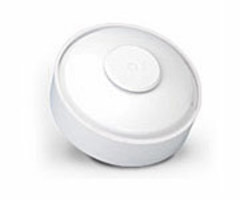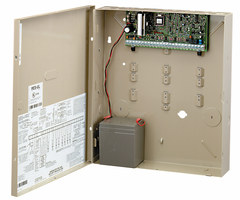How Do I Program a Wireless Zone on My Honeywell VISTA-20P?
You can program a wireless zone on your Honeywell VISTA-20P by using an alphanumeric keypad to access zone programming. You will then be able to program the zone from there. Please note, you will need to have the installer code for your VISTA-20P system in order to access zone programming.
Complete the following steps to program a wireless zone on a Honeywell VISTA-20P:
1. Access system programming. Enter the installer code (the default code is 4112) + 800 on a keypad. The will display “Installer 20”, showing that you have successfully entered system programming.
If you find you are not able to access programming, you will need to use the back door method to access programming. The video shown below will show you how to use the backdoor method. The VISTA panel used in the video is the 21iP, but the steps are exactly same for the 20P.
2. Access zone programming. Enter * 56. The system will display “Set to Confirm 0=No, 1=Yes”. This is the first screen that’s displayed in zone programming. Enter 0 to continue.
3. Select a zone. The system will now display the zone selection screen, with the first zone of the system in the entry. Any zone number between 09 and 48 can be used for wireless zones. The existing zones on the system should be checked before adding a new sensor to make sure an existing sensor isn’t overwritten. Enter the zone number you would like to program, and then press * to confirm. The system will display the zone overview for the zone selected.
The table below explains what each display refers to:
|
ZN |
ZT |
P |
RC |
IN: |
L |
|
Zone Number |
Zone Type |
Partition Number |
Report Code |
Input Device Type |
Loop Number |
4. Program the zone. Enter * at the summary screen to begin programming the zone. After configuring the field in the desired manner, enter * to confirm and continue to the next field.
The table below shows what each field type means:
|
Field Type |
Programming Information |
|
ZT - Zone Type |
This indicates how the system will respond when the sensor for that zone is triggered. For example, a smoke detector will most likely use “9 - Fire”, while a window may use “03 - Perimeter”. |
|
P - Partition |
This will select which partition the sensor is programmed to. Most installations will have sensors programmed to partition 1. |
|
RC - Report Code |
Enter 01 then * to set the zone to report to central station. Report codes are entered in hexadecimal format. A 1 is entered as 01, 2 is 02, and so on. Alarm Grid customers need only enter 01 in the first digit entry, though any valid entry (01 - 15) will work. Digit 2 does not matter and can remain at 00. |
|
IN: - Input Device Type |
Enter 3 then * to confirm that the zone is a wireless sensor. |
|
Input S/N - Input Serial Number |
The serial number for a wireless sensor can be manually entered, or it can be learned-in automatically. Learning-in the device is the recommended method for adding the serial number. Activate the sensor two times to learn-in the serial number. |
|
L - Loop Number |
On the same screen, the loop for the sensor can be configured. Check the installation manual for the sensor for information on which loop should be used. |
|
Zone Summary |
The zone summary screen will display with all of the previous field values. |
|
Program Alpha |
Alpha refers to the descriptors that can be added to a zone. These will display when the zone faults, when the zone triggers an alarm and when connecting to the system remotely via Total Connect 2.0. Continue without entering alpha, or enter a desired name. Press 0 when finished. |
5. Exit programming. The system will jump back to the zone selection screen after configuring the sensor's properties. Enter 00 to back out of zone programming. Enter *99 to exit system programming.
6. Test the sensor. Fault or activate the sensor. The system should display the zone number for the sensor and whether it is faulted, in trouble or in alarm depending on which test was done.
Did you find this answer useful?
We offer alarm monitoring as low as $10 / month
Click Here to Learn MoreRelated Products
Related Videos
Related Categories
- Transmitters
- Wireless Glass Break Detectors
- Wireless Motion Detecting Sensors
- Wireless Environmental Sensors
- Wireless Smoke Detectors
- Wireless Garage Door Alarm Sensors
- Wireless Door Sensors and Window Alarm Sensors
- Wireless Shock Sensors
- Wireless Heat Detectors
- Answered
- Answered By
- Joe Gonnella









